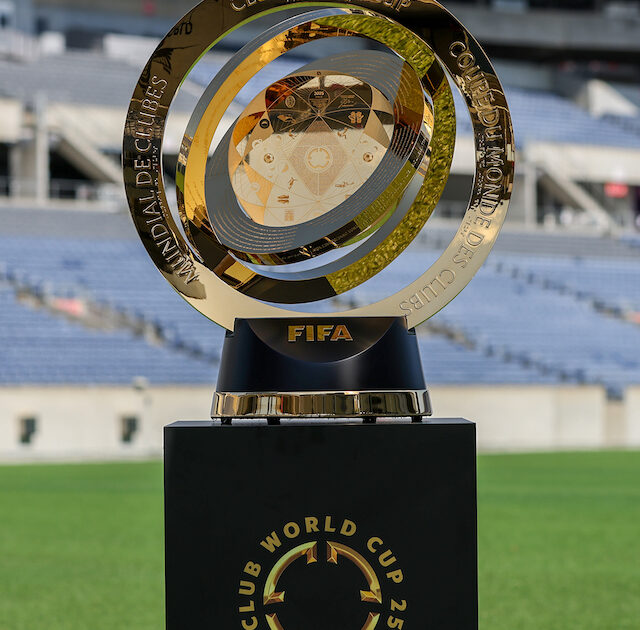The Club World Cup clash between Brazilian giants Palmeiras and Egyptian powerhouse Al Ahly, a rematch of their third-place playoff in the 2020 edition, was dramatically interrupted in the 63rd minute due to a severe weather warning at the MetLife Stadium in East Rutherford, New Jersey. Despite the sunny conditions prevailing at the time, the match officials, adhering to stringent weather protocols, suspended play and instructed players and fans to seek shelter amidst an approaching storm. Palmeiras held a comfortable 2-0 lead at the point of suspension, courtesy of an own goal by Al Ahly’s Wessam Abou Ali in the 49th minute and a strike by Flaco Lopez just ten minutes later. This disruption marked the third weather-related incident affecting the tournament, raising concerns about scheduling and the broader impact of unpredictable weather patterns on global sporting events.
The earlier disruptions to the tournament schedule underscored the increasing vulnerability of outdoor sporting events to the whims of nature. On Tuesday, just before the scheduled kickoff between Mamelodi Sundowns and Ulsan HD, a similar weather alert forced a postponement of over an hour. This delay not only disrupted the flow of the tournament but also inconvenienced fans who had travelled to witness the match. Similarly, on Wednesday, the match between RB Salzburg and Pachuca experienced a substantial delay of 97 minutes during the second half due to another storm system passing through the area. These repeated interruptions highlight the growing challenges faced by organizers in ensuring the smooth execution of sporting events amidst increasing climatic unpredictability.
The standard public safety protocols implemented across the United States for outdoor sporting events necessitate a minimum 30-minute suspension of play upon the sighting of lightning or the sound of thunder. This precautionary measure prioritizes the safety of players, officials, and spectators, recognizing the inherent dangers posed by lightning strikes during thunderstorms. The stringent enforcement of these protocols, as witnessed in the multiple disruptions during the Club World Cup, reflects a broader emphasis on safety and risk mitigation in the face of volatile weather conditions.
The repeated weather-related suspensions raise several pertinent questions regarding the future of scheduling and venue selection for international sporting events. Organizers must increasingly consider the potential impact of unpredictable weather patterns when planning tournaments, particularly those hosted in regions prone to sudden storms or extreme weather events. This necessitates a more proactive approach to weather monitoring, contingency planning, and communication with stakeholders to minimize disruptions and ensure the safety of all involved.
Moreover, the disruptions also highlight the growing importance of flexible scheduling and alternative venue options. Tournament organizers may need to explore the feasibility of incorporating backup venues or adjusting match schedules to accommodate potential weather delays. This could involve rescheduling matches to different days or times or even relocating matches to indoor facilities if available. Such flexibility would require greater coordination and communication with participating teams, broadcasters, and sponsors, but it would ultimately contribute to the smooth and safe execution of the tournament.
Finally, these incidents underscore the need for enhanced communication and transparency with fans attending these events. Clear and timely communication regarding weather-related delays or cancellations is crucial to ensuring the safety and well-being of spectators. This includes providing regular updates through stadium announcements, social media platforms, and mobile applications. By prioritizing clear communication and proactive planning, tournament organizers can mitigate the impact of weather disruptions and create a more positive experience for all stakeholders.


